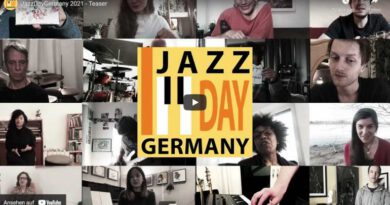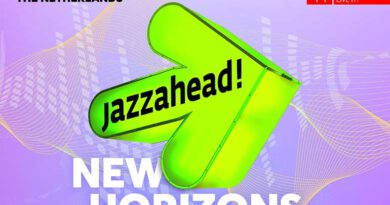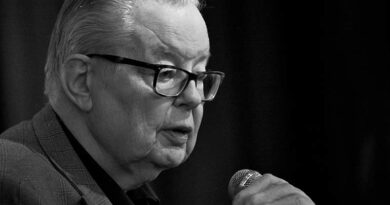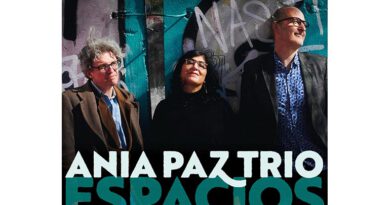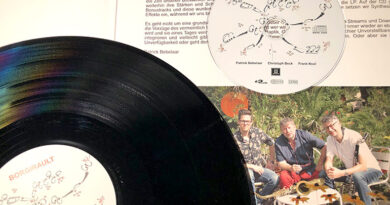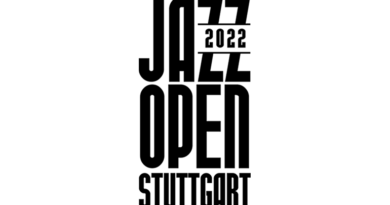John Beasley in conversation with Cosmo Scharmer
John Beasley in conversation with Cosmo Scharmer about the current project with the SWR Big Band
This interview in the German translation
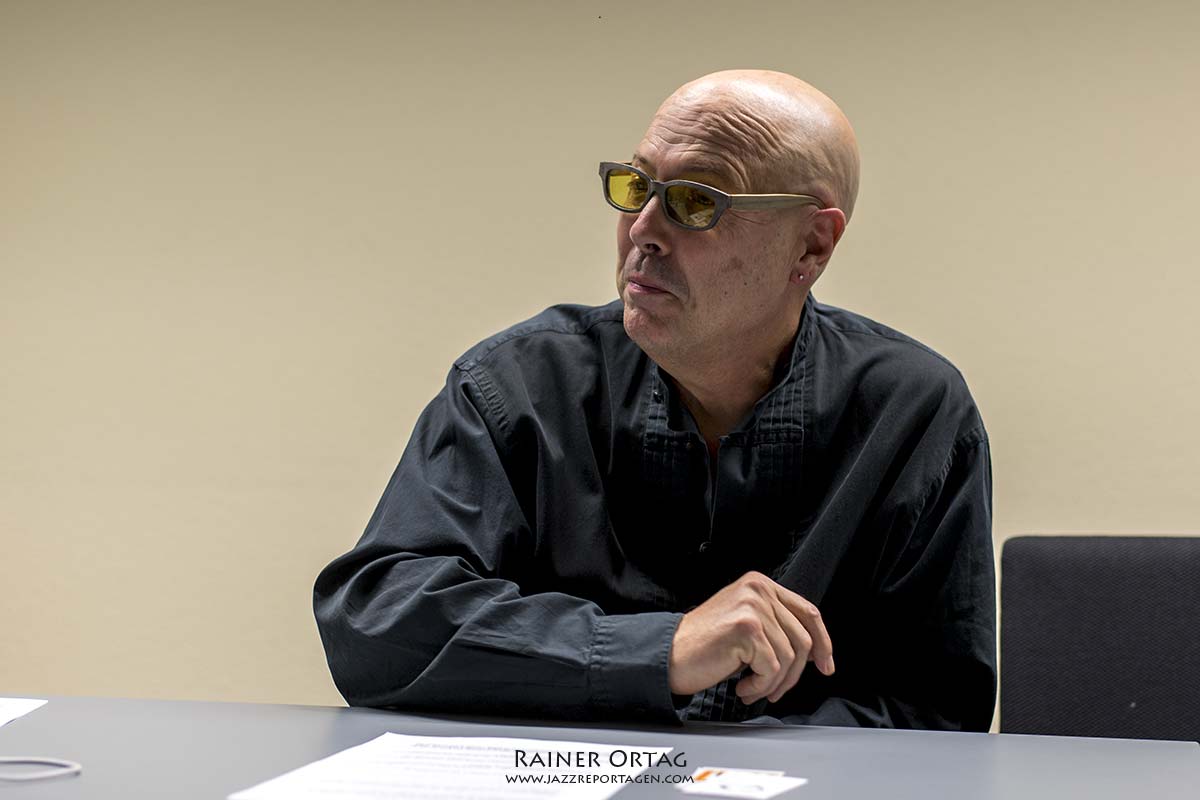
First of all we would like to congratulate you on your nominations for the Grammy. Are these nominations still something special or has the nomination already become a matter of course for you?
I appreciate your acknowledgment of my new Grammy nominations. It’s always very special because the voters are musicians, producers, engineers, and others in the industry, so if they vote for you, it’s the highest compliment –it’s not a general public award or a popularity award.
It’s based on merit. In the jazz category, there receive more submissions than any of the other categories, believe it or not, more than hip-hop, more than rock. So if you get in the top five for any of these categories, it feels like I got to the top of a huge mountain. My nominations were for diverse projects: my big band album, arranging for one of the instrumental songs, arranging for a Portuguese vocal album, and conducting the HR Big Band featuring Rwandese-Ugandan-African vocalist Somi, who wrote all the songs that had African influences.
1 (Best Large Jazz Ensemble Album “MONK’estra Plays John Beasley” — John Beasley)
2 (Best Arrangement, Instrumental or A Cappella “Donna Lee” — John Beasley, arranger (John Beasley)
3 (Best Arrangement, Instruments and Vocals “Asas Fechadas” — John Beasley & Maria Mendes, arrangers (Maria Mendes Featuring John Beasley & Orkest Metropole)
4 (Best Jazz Vocal Album “Holy Room: Live at Alte Oper” — Somi with John Beasley (conductor) for Frankfurt Radio Big Band
What is also mindboggling is to be listed with musicians that you are in awe of and have such high regard for.
Let’s get to the music, the current project with the SWR Big Band. Besides their own Monk’stra, you have played with many big bands, you have led them. In addition to the renowned SWR Big Band, there are other Big Bands in Germany that have a very good reputation, such as those of NDR or WDR or the HR. Why the SWR Orchestra in particular, what was the reason?
Magnus Lindgren has been working with the SWR Big Band, so when Magnus and I dreamed up this “Bird” project to mark Charlie Parker’s centennial (August 2020). He thought to bring it to the SWR Big Band.
The idea was to co-arrange and co-conduct while featuring ourselves as instrumentalists. We wanted to keep Bird’s music and legacy alive. We wanted to introduce new generations to Bird, but also while reimagining the music we wanted Bird fans to hear it in a fresh way. We had this idea to have a video artist join us on stage. Our agents started pitching the project to promoters. We were so lucky that major concert halls in the U.S., Sweden, and Germany were excited about the project and booked it before the music was even started. Lindgren was in Los Angeles around Christmas in 2019. We began talking about song choices which led us to reflect on the Charlie Parker with Strings albums. Then we thought we should add strings for a few reasons.
When we started writing together on each song, we realize that it is rare to have two arrangers work this way –to write on the same song and remote: Lindgren in Stockholm and me in Los Angeles. With new music and notation software you can work off of one score. We both started arranging a couple of different songs, then we emailed what we wrote to each other, then switched to adding to each other’s scores –and back and forth like that for every chart. It was truly a very interesting way to work.
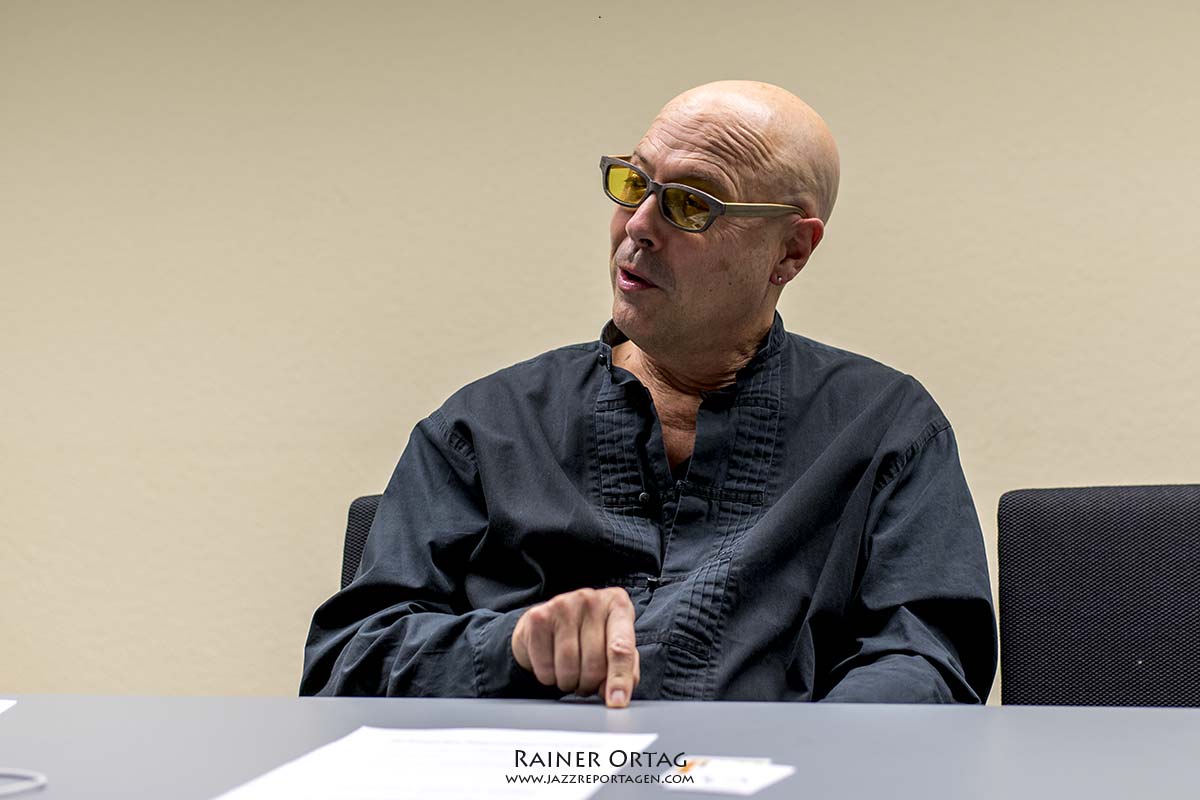
Yes. It’s very interesting that it’s possible to do something like that. It’s a long history of how this project will be realized now.
The timeline was to finish writing by the end of April because we were scheduled to record with the SWR Big band and strings in June. Then, the global premiere would be the day before Bird’s centennial on August 29th at the Hollywood Bowl, which is a historic outdoor concert venue in Los Angeles with a capacity of 17,500 people. The next concerts were in Sweden and Germany and back to the U.S. But COVID-19 cancelled concerts, cancelled so much of everyone’s plans and lives.
But, in June, SWR’s Artistic Director Hans-Peter Zachary was able to organize a rehearsal with the big band and a string section in their large studio space with everyone physically distanced and Magnus on screen from Stockholm and myself in Los Angeles (at four o’clock in the morning) watching the rehearsal and guiding the orchestra. We were so impressed with how technology allowed us to do this. The next thing was to wait and see if we can meet in person in July. That was pushed to August, but that couldn’t happen then. There was hope in October and here we are rehearsing for three days and recording for two weeks meeting all the challenges that came along with recording during a pandemic.
Furthermore, recordings with the hr-Bigband (Hessicher Rundfunk) are planned. What kind of music do you want to create there?
When I released my first two big band albums, MONK’estra Vol 1 and Vol 2, I was lucky to be invited to bring those charts to the HR Big Band and conduct their swinging band. Their Chief Conductor, Jim McNeely, is fantastic. After, my MONK’estra concert, McNeely invited me to conduct the HR band with singer Somi, which is the live album that is nominated for a Grammy. Then, McNeely asked me to write for their Duke Ellington project in April 2020, which I had to do online because of Covid. I can’t believe I will be back in 2021 (Covid willing) to do more concerts with the band, this time featuring Chick Corea’s “Return to Forever“, and a night of Duke again, and of Thelonious Monk featuring my latest MONK’estra charts.
You have worked with so much great bands and great orchestras. So, you know everybody of them.
I haven’t worked with the WDR Big Band yet. That’s my new moon shot!
Is there a difference, apart from knowing your own musicians better, whether you work with your own orchestra or lead a „foreign“ big band?
That’s a very good question. I mean, with my own band, I know my musicians signature sounds, so I actually write for them. The band is very tight. We have been since 2013, with very few replacements. We’ve done many concerts over seven years, so I do write for them. In big band writing, there’s a long history of that. Duke always wrote for his musicians. Same with Stan Kenton. So, yeah, there is a difference. Luckily, Lindgren knew the SWR musicians well, so he was able to give me insider information on what each one and their signature sound, how they played, or nuances, so I wrote knowing these details. With the musicians in the HR Big Band, since I’ve now worked with them on a few projects, I feel I can now write knowing their flair.
Do you see a difference between the big bands in the States and those here in Germany?
We are in a whole shift with jazz today. We are now several generations since be bop was born, when Americans exported the music to Europe, to the world. Look at today, there are many jazz schools in each country, when there were none 50 years ago. So, now there are incredible musicians here, incredible jazz musicians everywhere.
You know, when Sonny Rollins came to Germany in the 60s, he played with the best German jazz musicians at the time. They were then introduced to us when the ECM label started. Then, we started to hear more from European musicians. Jazz is now universal music.
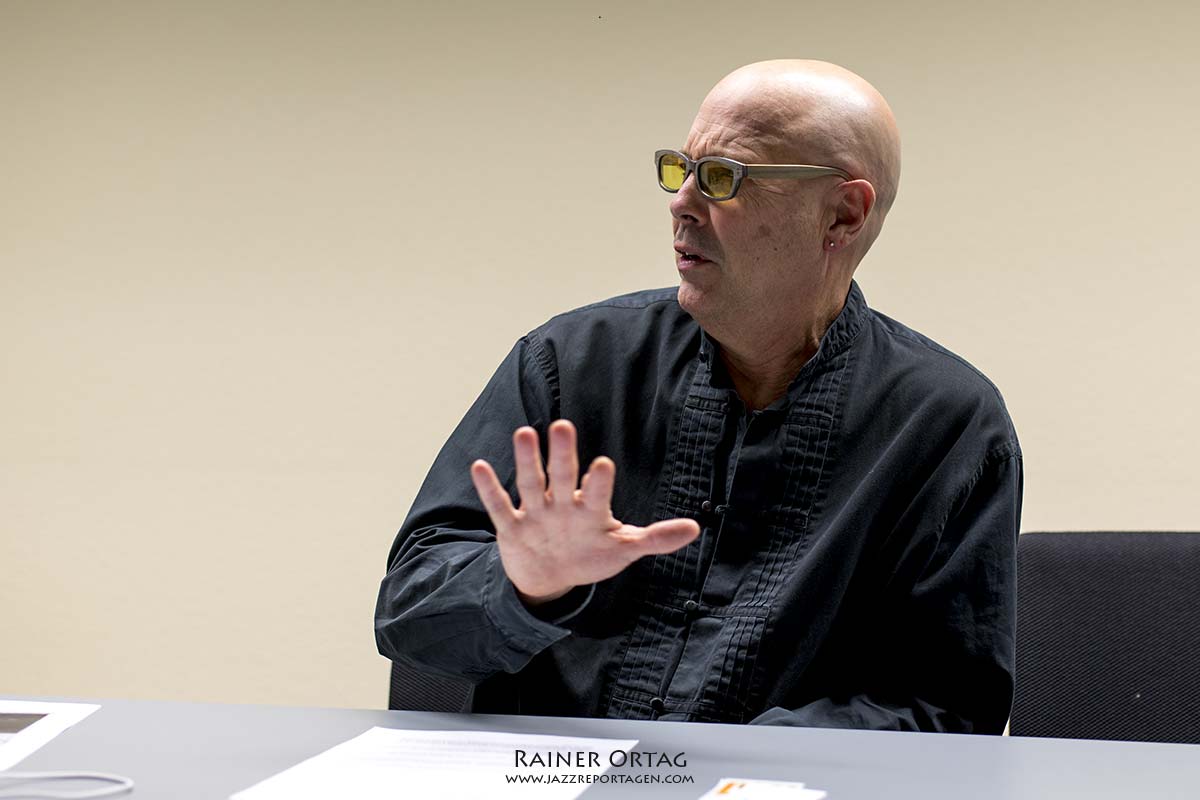
Yeah, it is a global music all over the world.
I’m the Music Director for International Jazz Day. We travel to a different country every year and perform with 30 plus all-star musicians representing every corner of the world. We have played in France, Istanbul, Osaka, Melbourne, Havana, St Petersburg, and the White House. I put together the ensembles and sometimes, some of the musicians don’t speak the same language but they can play music without any barriers.
The arrangements here in Stuttgart are of course made by you. Also all compositions? Or are there also some of the excellent standards that come from classics like Monk, Miles or Duke?
All of the music we are recording here in Stuttgard with the SWR Big Band is Charlie Parker’s reimagined by Lindgren and me. We are celebrating his genius, his legacy, his astounding creativity.
So we heard “Donna Lee” in the rehearsal some minutes before. What titles more can we find?
We recorded “Koko”, “Confirmation”, “Laura”, “Summertime”, “I Remember April”, a mash-up of “Scrapple from the Apple” and “Aleucha”; and an overture with lots of small segment of Bird songs.
The current pandemic makes live concerts impossible and also makes CD recordings and studio difficult. There are completely new conditions. How do you solve these difficult change challenges in concrete terms?
Yes, when you play concerts, musicians are near each other, feeding off of each other and feeding off of the audience. Jazz is a call-and-response music, you listen to each musician intently as they play, then you pick up what they are saying and respond in an improvisational way. No two concerts are supposed to be alike because you say something different with your instrument each night. And, we respond to the audience too, so they are different each night.
Same situation in a recording. We are near each other and inspiring each other. But with Covid, we had to split up the sections and put them in different rooms or record one section one day and another section separately. I work like this when recording film scores. We have the whole orchestra there, but we work one cue, then we break out. We listen, then go back to record the woodwinds, then listen. Then, brass, listen, then rhythm section.
But it seemed to be really difficult. The people are playing separate. They hear music only with their ear set. And it’s really a challenge to make a record.
Not really. Musicians have been recording with overdubs since multi-track recording in the 60s –the Beatles, all the CTI records with the famous arranger Don Sebeski who worked with Freddie Hubbard, Hubert Laws. Think of Stevie Wonder who played every instrument. He played one, then it was overdubbed.
We had 3 days of rehearsals with the SWR big band with everyone sitting far apart. This gave us a chance to feel the music as a group, but when we recorded we decided to split it up in sections and different days to be safe, but overdubbing made it work. You are still listening to the other parts, whether they were done before or at the same time, you’re still listening to what’s going on and reacting.
So, really, it’s not that much different as if we would all play together.
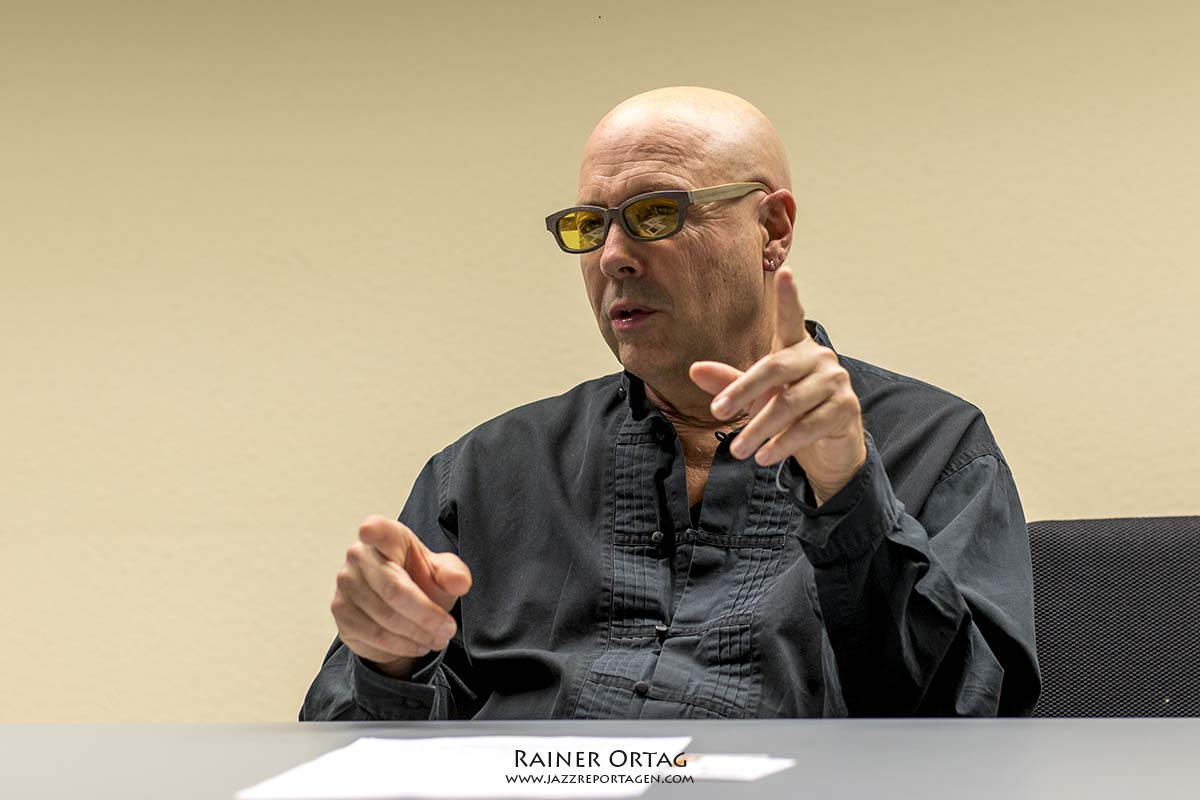
But it is an interesting way to do a jazz record, that’s for sure. It would certainly be nice to experience these recordings in concert under your direction. Can this be planned at all?
The pandemic is still surging across Europe and in the U.S. the cases and deaths are still increasing at shocking numbers. We are all waiting for the vaccine as a pathway out of this pandemic. We are nearly a year in lockdown and to vaccinate 7 billion people in the world, well, it will take most of 2020, so I think the concerts will be pushed to near the end of 2021. We have placeholder dates in November 2021. See you there!
And, let’s hope for a repeat of the Roaring 20s and the next Jazz Age starting in 2022. After nearly 2 years in lockdown, people will want to party like crazy, so let’s hope for more music and lots of concerts. That’s what I hope.
We hope so, too. Yeah. Back to hr Bigband and the planned recordings. Is there a difference between the recordings and the musicians with the SWR Big Band?
Sure. Every band has a different personality. The HR Big Band is a fixed working band who rehearse and perform on a scheduled regular basis. This is their job. They are a really creative, sort of edgy, leaning sometimes toward avant garde band that choose a wide range of repertoire from Coltrane and Eric Dolphy. Their conductor Jim McNeelly is a really swinging arranger and composer.
The SWR Big Band come together for a number of performances. Some of the musicians are freelance and come from various cities and even other countries. They bring unique experiences because they play with many bands with different musicians for a variety of performances. So, when they do come together for recordings or concerts, they are excited to reconnect and give it a blast of vigor, of gusto, of excitement for being together again.
Thank you very much for this detailed interview John.
My pleasure.
The interview was conducted by Cosmo Scharmer (jazz-fun.de)
Click here for the first part of this interview with John Beasley on jazz-fun.de
Interview with John Beasley about his new album MONK’estra Plays John Beasley on jazz-fun.de
John Beasley portraits

